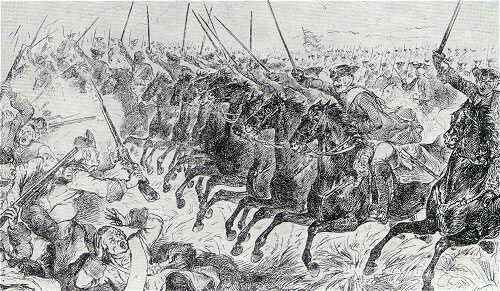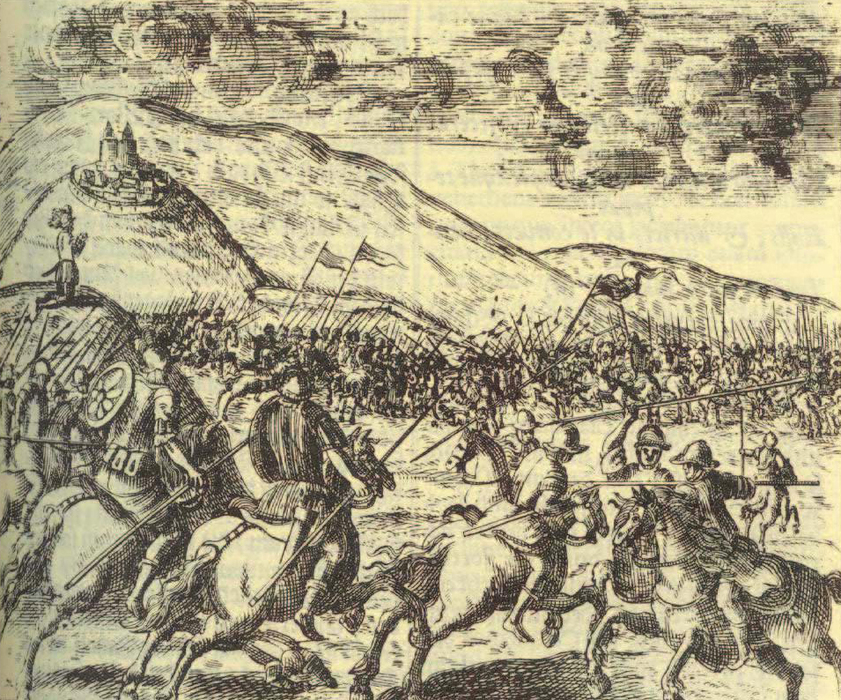Chapter XXVI: Disaster along the whole front.
Early August to Early October 1111 VTE
As events developed in the North, Magnus had been sieging Trinitas, the important city at the fork of the Vesta River for a few months now. His army had suffered a repulse in Early July when 20,000 men that were sent to take Aquileia were defeated Antium by Sergius Cato and forced to turn back with around 2,000 losses for both sides. He had been suffering from hit and run attacks from Cato throughout the summer and his army was suffering from dysentry but he was getting close to finally forcing Trinitas to capitulate in late July.
Knowing that the loss of Trinitas would be a major strategic blow to his defense of Syrenia, Cato would force himself into a major battle at Ptolemais in Late July. Over the course of July 26th and 27th, both armies suffered great losses, but Cato was unable to force Magnus to break off his siege. Losing 14,000 to 11,000 Dragoonians, Cato was forced to withdraw and attempt to consolidate his force at Laodice. Shortly after the battles, Trinitas finally surrendered on August 1st, with the garrison of 6,500 being sent to Kalmar to be impressed into service for Magnus. Magnus's army now only numbered 50,000, thanks largely to disease but the King knew he still outnumbered the Syrenians two to one. Thus, after leaving 15,000 behind at Trinitas to recuperate, Magnus took the rest of his army down the right bank of the Vesta in mid-August hoping to defeat Cato and capture Laodice on the march.

Battle of Ptolemais
Despite early successes, Magnus would be defeated at Utica by Cato on September 8th, after unsuccessfully trying to break through the entrenched Syrenians with the cost of 6,000 men. Magnus thus would turn back to Trinitas with roughly 27,000 men and would try a different approach this time. In early October, He marched towards the city of Arretium, which an important stronghold along the Cumae-Aquileian Road with around 20,000 men. Capturing the city would provide an excellent jumping off point for next year and he was determined to take it at all costs. On October 20th, he fought Cato to a bloody draw 4km from the city at the village of Scriptorium. Cato, down to only 14,000 men, withdrew and allowed Magnus to capture Arretium. It had been an excellent campaign year for Magnus, and he would settle his army into their winter quarters at Arretium, Opimia, and Trinitas while he planned for the next year's campaign
"Old Cranky", after a long march from Nöteborg, finally had reached his objective, Venusia in Late September. His army was exhausted from this long march across rough terrain, but Karl would not be satisfied until he took Venusia. Fortunately for him and his men, the city capitulated without a fight and welcome the old man in with honors. Venusia was not a city that liked Pomerlane, being filled with Republican supporters who had been waiting for such an opportunity. Great celebrations erupted in the city and the people went as far as naming the Count-Palatine as their Prince, an honor the old man respectfully declined. It had been a rough year for "Old Cranky" but he had managed to make something out of what was a disaster in the beginning. Now with Venusia under his control, he could strike towards the coast next year.
Along the northern front, Pomulius decided to exploit Mansfeld's exploits at Nyborg to his advantage by attacking towards Schemmerhofen. On August 24th, he would meet the Archducal army outside of Landsholm, 25km from Schemmerhofen and inflict at costly defeat on it. The Archducal army lost 7,000 men during this battle to only 3,000 Pomeranians. In early September, he would capture the city of Schemmerhofen without resistance. Realizing that the fertile farming lands of Uppland and Ingria were now pratically undefended, Pomulius launched a brilliant campaign into both with Mansfeld, annihilating the Ingrian Corps of Pomupius at Osby and taking both of the regions by the end of campaigning season in Late October. This was a shocking defeat for Eliria and Pomerlane, who would now have to rely on captured grain or grain imports to feed their people. The Elirian army had suffered greatly over this time, losing many of its veterans at Landsholm and the entire Ingrian Corps at Osby, including Pomupius himself. Morale was at an all-time low for the Archducal Army and it would need the winter to rebuild itself into a capable fighting force again.

Destruction of the Ingrian Corps at Osby
At the same time as all of this, Pomerlane launched his raid into the Duchy of Drachin at the beginning of August. The Duchy was the top grain producer for Selenium and it was almost harvesting season. Pomerlane let his cavalry run wild over the Duchy over the next two months, capturing large amounts of Grain and burning down many farms along the way. In Late August, Dragoonian Cavalry would fight one of the two main raiding parties under Theophylact at Kristinborg, 15km away from Schöneworth. Theophylact would be suffer a defeat during this battle, losing 500 men and much of the captured loot; but overall, the Cavalry raids were a great success.

Defeat at Kristinborg
Meanwhile, Pomerlane concentrated his efforts on capturing the key fortress of Herzogburg, which overlooked the Järnhuvud-Långshyttan road. After a month's siege, the fortress fell and Pomerlane planned on using it as his basis of future operations into the Duchy. By the end of September, Pomerlane began his march north back to Lillehammer. He wanted to winter near Diamond City and concentrate his operations next year on Drachin but disaster in the North meant that he needed to make the long march to Lillehammer. Leaving 5,000 men at Herzogburg and 7,000 at Diamond City, Pomerlane's army of now 17,000 now marched to Lillehammer.
While his army was off to Lillehammer, Pomerlane himself would wait for his Empress at Diamond City, who was on route to meet him there. The two's relationship had gone down the drain since the war began. They had meet twice so far and each time was rather bittersweet. The first meeting was during the march to Diamond City in Late July. Emylia was growing concerned about developments in the North and South and urged her husband to invade Pomerania right away to force the two other armies to withdraw. He dismissed this advice, telling her that it would only cause his supply lines to be threatened and he had to drive the Pomurans out. Not long after her meeting with the King of Pomerania, she urged her husband to stop his invasion of the South and turn north as the Northern armies were starting to have success. He didn't reply and when she met with him in mid-September, she tried once more to convince him to no avail. This was before the disaster at Osby, and the Empress was growing increasingly frustrated over her husband's lack of care for seemingly anything but his own glory. Her frustration was about to boil over soon.
Overall, the year had been a disaster for Pomerlane. It seemed that wherever he was not, defeat awaited his men. He personally had little room to operate with because the North was the most important front to him, but with the way things were going worse than he expected in the south, he might have to abandon much of Eliria in any case. He was increasingly depressed by the course of the war. Everyone was failing around him, and he had his hands tied by this. Furthermore, his PTSD was catching up to him along with the pains of past wounds. He was doing his best for his people, and his family but no one, not even his own wife seemingly cared about his own well-being. Indeed, his wife had shown him no support emotionally or physically at all since the war began. He didn't know what she was doing but it seemed she was trying to armchair general him without understanding the situation. In truth, neither of them understood the situation of the other properly and it would bring about the low point of their marriage soon enough